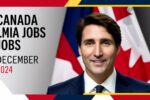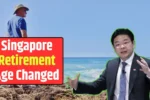What is more, it looks like there was always an official five-month break rule regarding F-1 visa status, although, it was never really applied to students on study abroad programs. However, the new guidance put in operation since August 27 has introduced this absence rule to study in foreign countries. Due to this, an F-1 student will lose their status if they participate in programs longer than five months.
Responses from Education Management and Institutions
Minerva University president Mike Magee also criticized this policy, stating that there are many campuses in the United States that have study abroad programs that last more than five months. He finds that the new rule reduces useful experience for international students.
Magee also pointed out that while the clarion call that was made by the U.S government seeks to promote clarity of the rules that govern the conduct of online classes, the ripple effect of such actions especially as implemented by the Learning Management Systems that this research focused on, have potential to harm students.
Difficulties faced by students in foreign countries
Under new policy, those who go abroad for more than five months will have to come back to the USA and, therefore, may become inactive students. This change makes the process for obtaining and maintaining F-1 status less straightforward as students will have to go to SEVIS and obtain a new Form I-20 and pay the requisite fees even if SEVP certified school they are attending does not change.
Magee also pointed out that, following the government website, it would appear that increasing the duration of study abroad is a simple process. A large number of students might feel lost due to new provisions which create questions about their lives in this country.
The Broader Impact on Global Education
Minerva University with its new internationalized educational model has expressed concern that this policy would reduce the number of potential international leaders coming to the U.S. The university also has an interesting academic process based on the annual exchange of students around the world, thus building a worldview. However, with the new restrictions in place, it is no longer possible for F-1 visa holders to complete full-length rotations.
These changes have already caused Minerva to repatriate close to 150 students from Europe for their protection of student visas. Such students have to stay in the U.S. for another year in order to become eligible to learn in another country again.




